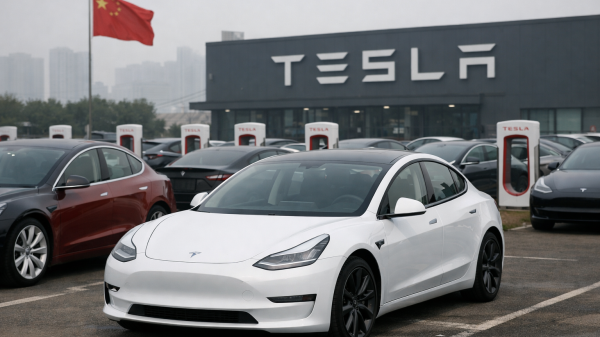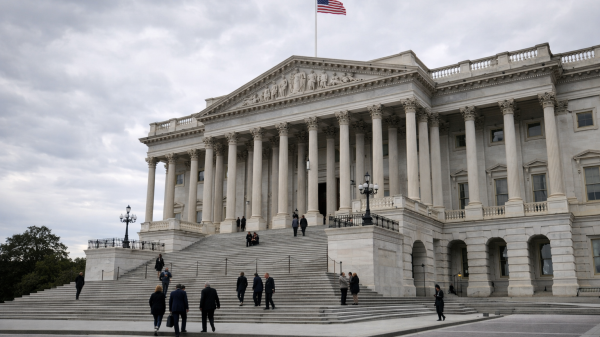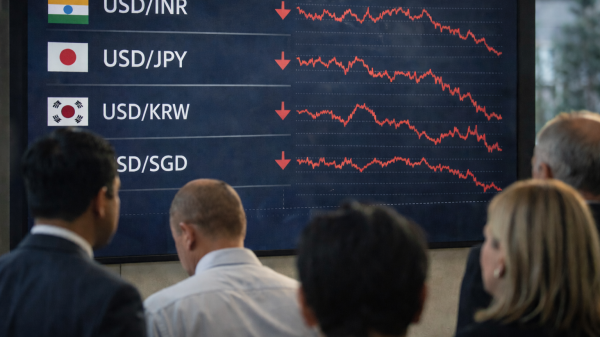US President Donald Trump has imposed the steepest American tariffs in a century, targeting over 60 nations in a sweeping trade measure aimed at addressing what he calls unfair trade imbalances.
India has been hit with a 26% tariff on its exports to the US, making it one of the most affected countries.
Announcing the decision on Wednesday, Trump described Indian Prime Minister Narendra Modi as a “great friend” but argued that India has not treated the US fairly in trade.
“India, very, very tough. Very, very tough. The Prime Minister just left. He’s a great friend of mine, but I said, ‘You’re a friend of mine, but you’re not treating us right.’ They charge us 52 per cent. You have to understand, we charge them almost nothing, for years and years and decades,” Trump said, presenting a chart listing countries and their tariff rates.
While the blanket 26% tariff affects Indian exports broadly, certain sectors will be treated differently.
For example, Indian automobile exports to the US will face a 25% tariff imposed on all auto imports globally, and not 51% (25%+26%).
However, industries such as pharmaceuticals, semiconductors, and minerals will remain exempt from reciprocal tariffs.
Markets react negatively to reciprocal tariffs, but analysts see scope for negotiation
Following Trump’s announcement, Indian stock markets declined, reflecting investor concerns over the impact of tariffs on exports.
As of 12 PM Thursday, the BSE Sensex was down by 204.19 points (0.27%) at 76,413.25, while the Nifty 50 fell 43.65 points (0.19%) to 23,288.70.
However, analysts suggest that India has the ability to negotiate tariff relief through trade talks.
“The ministry is analysing the impact of the announced tariffs… It is a mixed bag and not a setback for India,” a senior commerce ministry official told PTI, adding that discussions with the US could lead to revisions.
Brokerage firm Emkay estimates that India’s exports to the US could decline by $30-33 billion (0.8-0.9% of GDP) under the new tariffs.
However, it noted that recent trade negotiations between India and the US present an opportunity for a bilateral agreement.
“We highlight some ‘easy wins’ that India could offer the US in exchange for tariff concessions, including higher energy and defence imports, lower tariffs on specific agricultural commodities, and reduced duties on foreign electric vehicles,” Emkay said in a note.
Bernstein echoed this sentiment, predicting that India would opt for negotiation rather than escalating trade tensions.
While market reactions may be negative in the short term, the firm expects the Indian economy to recover in the latter half of the year.
India must also guard against Chinese trade responses
Beyond the immediate impact of tariffs on India, analysts are closely watching China’s response to Trump’s move.
The US has also imposed higher reciprocal tariffs on several Asian and European countries, including China, Vietnam, Taiwan, Thailand, and Bangladesh.
Some analysts believe this could create opportunities for India in global trade and manufacturing.
“Trump’s decision to impose higher reciprocal tariffs on multiple Asian nations could provide India with an opening to strengthen its position in global supply chains,” said Ajay Srivastava, founder of the Global Trade Research Initiative (GTRI).
Asia has been hit much more than India on tariffs, and India is less export-exposed vs EM Asia, but India is unlikely to be non-synced with EM Asia on the cyclical downturn, Emkay said.
Emkay also cautioned that China’s reaction could have unintended consequences for India.
“China’s survival response to this massive tariff blow will matter for India, given its excess industrial capacity and aggressive pricing in Asian markets. As India negotiates with the US and other trade partners, it may also need to guard against Chinese trade responses, including retaliatory tariffs that could hit domestic industries and drive disinflation,” the brokerage noted.
Experts expect a measured Indian response
While the 26% tariff is significant, some market observers believe it is not excessive compared to US duties on other countries such as China and Taiwan.
Geojit Investments Chief Investment Strategist VK Vijayakumar pointed out that India still has room to negotiate, and a potential trade deal could reduce the tariff burden.
“The market is likely to respond negatively in the short term, but a bilateral agreement could ease tariff pressures in the future,” Vijayakumar said.
Meanwhile, Narinder Wadhwa, Managing Director & CEO of SKI Capital Services, noted that US protectionist policies generally trigger risk aversion among foreign portfolio investors (FPIs).
“The Indian stock market tends to react negatively to US trade restrictions, as they increase global risk aversion. FPIs may reduce exposure to emerging markets, leading to increased volatility. Additionally, risk-off sentiment could weaken the rupee, affecting imported inflation and companies with foreign debt,” Wadhwa explained.
As the situation unfolds, attention will be on the Indian government’s response and whether negotiations with the US lead to tariff concessions that mitigate economic disruptions.
The post Trump’s reciprocal tariffs: Indian markets to react negatively in short term, but negotiations could buy relief appeared first on Invezz




































